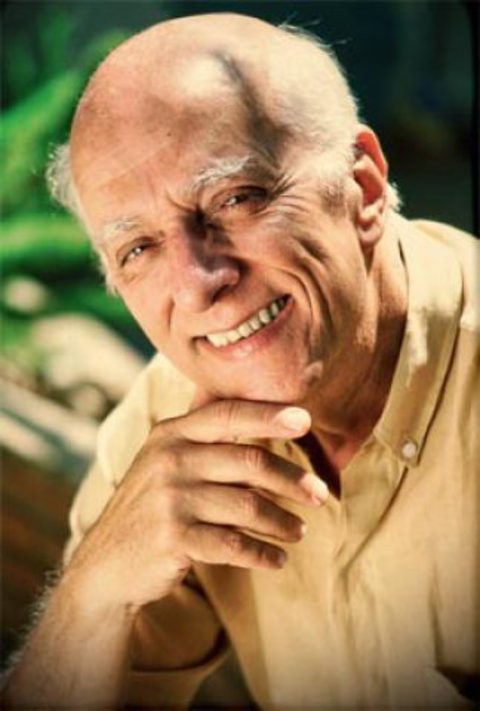ARC’s Theopoetics Resource List
Note
This list is very skewed toward a Christian worldview and is largely comprised of white men, whose voices dominated writing on the topic for years. That is changing. We find the work here to be a useful starting place for people wanting to track the ideas over time and we think this list is not as diverse as it should be. We're actively working to expand this resource .
ARC's Definition of Theopoetics
When we're being technical, the way that ARC uses the word has four components.
Theopoetics is (1) an emphasis, style, and positive concern for the intersection of religious reflection and spirituality with the imagination, aesthetics, and the arts, especially as (2) it takes shape in ways that engender community-affirming dialogue that is (3) transformative in effect and (4) explicit about embodiment’s importance.
More generally, theopoetics is not an alternative to theology. It's a way to do religious reflection that gives greater attention to form, genre, and method. It validates art, experience, and the body as a source of religious reflection and is concerned with the emotional and "pre-rational" impact as well as the concrete consequences of religious reflection. Art and ideas should matter.
ARC's Questions for Grounding
The guidelines that we use when hosting conversations at our events is available here.
Other Definitions of Theopoetics
Here is a collection we've made of 14 different folks who each give a slightly different description of what exactly it is that "theopoetics" is. If you know of others who should be on this list, please let us know.
Multi-Author Resources
ARC Archive of Theopoetics Theses and Dissertations | Online here.
Theopoetics Journal | Online here.
Theopoetic Folds: Philosophizing Multifariousness. Edited by Roland Faber and Jeremy Feckanthal.
New York: Fordham University Press, 2013.
“Theopoetics: (Re)clamation and Utility.” Syndicate Symposium. 2016. | Online here
Print form available here.
“Theopoetics.” Full Issue of Cross Currents. March 2010, 60.1 | Online here
“The Return of Theopoetics." Full Issue of Cross Currents. December 2014, 64.4 | Online here
About Theopoetics Directly
Rubem Alves
Alves, Rubem. The Poet, The Warrior, The Prophet. Philadelphia: Trinity, 1990.
———. “Theopoetics: Longing and Liberation.” In Struggles for Solidarity: Liberation Theologies in Tension. Edited by Lorine M. Getz and Ruy O. Costa, 159–71. Minneapolis: Fortress, 1992.
Cervantes–Ortiz, Leopoldo. Teología ludo–erótica–poética de Rubem Alves. Quito, Ecuador: Consejo Latinoamericano de Iglesias, 2003.
Caputo, John. Against Ethics: Contributions to a Poetics of Obligation with Constant Reference to Deconstruction. Bloomington, IN: Indiana University Press, 1993.
———. "Jacques Derrida (1930–2004)." Journal for Cultural and Religious Theory. 6.1 (2004) 6–9.
———. Philosophy and Theology. Nashville, TN: Abingdon Press, 2006.
———. and Catherine Keller. “THEOPOETIC / THEOPOLITIC.” In Cross Currents. 56.1 (2006–7) 105–11.
———. What Would Jesus Deconstruct? Grand Rapids: Baker Academic, 2007.
———. The Weakness of God: A Theology of the Event. Indianapolis: Indiana University Press. 2006.
———. The Insistence of God: A Theology of Perhaps. Indianapolis: Indiana University Press. 2013.
Dailey, Thomas F. “Eucharist & the Theopoetics of Encounteraccording to St. Francis de Sales.” in Human Encounter in the Salesian Tradition, edited by Joseph Chorpenning, 63–76. Rome, Italy: International Commission on Salesian Studies, 2007.
Roland Faber
Faber, Roland. God as Poet of the World: Exploring Process Theologies. Louisville: WJK, 2008.
———. “Process Theology as Theopoetics.” Lecture at Kresge Chapel, Claremont School of Theology, February 7, 2006
Goizueta, Roberto. “U.S. Hispanic Popular Catholicism as Theopoetics.” In Hispanic/Latino Theology: Challenge and Promise. Edited by Ada María Isasi-Díaz, 261–88. Minneapolis: Fortress, 1996.
Gundy, Jeffrey. Lecture “Songs from an Empty Cage: Some Notes on Theopoetics.” Hillsdale College 2–13–12. In John Rasche's “Gundy speaks at Hillsdale College.” Online here.
Guynn, Matthew. “Theopoetics and Social Change.” Cross Currents, 60.1 (2010) 105–14.
———. “Theopoetics: That the Dead May Become Gardeners Again.” Cross Currents, 56.1 (2006) 98–109.
Scott Holland
Holland, Scott."The Anabaptist’s Will, The Pietist’s Heart and The Lover’s Gaze." Brethren Life and Thought (April 2012). Online here.
———. “Damn the Absolute! Or Why We Still Need William James.” Lecture. Leuven Encounters in Systematic Theology VII: To Discern Creation in a Scattering World, 10–29–2009.
———. “Editorial.” Cross Currents, 56.4 (2007) 4–5.
———. How Do Stories Save Us? Dudley: W.B. Eerdmans, 2006.
———. “Theology Is a Kind of Writing: The Emergence of Theopoetics.” Cross Currents. 47.3 (1997) 317–31.
———. “Forward.” In Songs from an Empty Cage: Poetry, Mystery, Anabaptism, and Peace, by Jeffrey Gene Gundy. 11–12. Cascadia Publishing House, 2013.
Hopper, Stanley. “The Literary Imagination and the Doing of Theology.” In The Way of Transfiguration: Religious Imagination as Theopoiesis. Edited by R. Melvin Keiser and Tony Stoneburner, 207–29. Louisville: Westminster/John Knox, 1992.
———. “Introduction.” In Interpretation: The Poetry of Meaning. Edited by David L. Miller, ix–xxii. New York: Harcourt Brace, 1967.
———. Interview. Dan Noel interviewing at Drew University. 1977.
Hulbert, Steve & Jeanyne Slettom. “Poetics, Post–Structuralism, and Process.” Process Perspectives: Newsmagazine of the Center for Process Studies. 29.1. (2006) 9–10.
Kaiser, Melvin. “Introduction: The Artistry of Theopoesis.” In The Way of Transfiguration: Religious Imagination as Theopoiesis. Edited by R. Melvin Keiser and Tony Stoneburner, 1–18. Louisville: Westminster/John Knox, 1992.
Keefe-Perry, L. Callid. Way to Water: A Theopoetics Primer. Eugene, OR: Cascade Press, 2013.
___. "Flesh to Mind: Whetstone to Thought." Cross Currents, 64.4 (2014): 489–495.
___. "Toward the Heraldic: A Theopoetic Response to Monorthodoxy." In Theopoetic Folds: Philosophizing Multifariousness. Edited by Roland Faber and Jeremy Feckanthal, 142–158. New York, Fordham University Press, 2013.
___. "Divine Exploration and Invitation." Cross Currents, 60.1 (2010) 89–104.
___. "Theopoetics: Process and Perspective." Christianity and Literature, 58.4 (2009) 579–601.
Catherine Keller
Keller, Catherine. “The Flesh of God: A Metaphor in the Wild.” In Theology That Matters: Ecology, Economy, and God. Edited by Kathleen R. Darby, 91–108. Minneapolis: Fortress, 2006.
———. "Goddess, Ear, and Metaphor: On the Journey of Nelle Morton." Journal of Feminist Studies in Religion, 4.2 (1988) 51–67.
———. ”Poetics, Post–Structuralism, and Process.” Process Perspective, 29.1 (2006) 1.
———. “The Pluri-verse.” In Theopoetic Folds: Philosophizing Multifariousness. Edited by Roland Faber and Jeremy Feckanthal, 179–194. New York: Fordham University Press, 2013.
———. "Richard Kearney's Endless Morning." In Philosophy and Social Criticism. 30.7 (2004) 890–896.
Krabbe, Silas. A Beautiful Bricolage: Theopoetics as God-Talk for Our Time. Eugene, OR: Wipf and Stock, 2016.
Melanie Duguid-May
May, Melanie. A Body Knows: A Theopoetics of Death and Resurrection. New York: Continuum International Publishing Group, 1995.
McCall, Richard. “Liturgical Theopoetic: The Acts of God in the Act of Liturgy.” Worship, 71 (1997) 399–414.
Meyer, Betty. The ARC Story: A Narrative Account of the Society for the Arts, Religion and Contemporary Culture. New York: Association for Religion and Intellectual Life, 2003.
Miller, David. “Stanley Hopper and Mythopoetics.” Speech delivered 2–5-2000. For the 40th anniversary meeting of The Society for the Arts Religion and Contemporary Culture. Accessed. 11–9–2012. http://www.sarcc.org/Hopper.htm
———. “Theopoetry or Theopoetics?” Cross Currents. 60.1 (2010) 6–23.
———. “Introduction.” In Why Persimmons? and Other Poems: Transformations of Theology in Poetry. Stanley R. Hopper. Atlanta: Scholars, 1987.
Poling, Travis. “Poetic Worship: The Renewal of Liturgical Language.” MA Thesis. Richmond, IN: Bethany Theological Seminary, 2011.
Puleo, Mev. “Rubem Alves.” In The Struggle is One: Voices and Visions of Liberation, 185–202. Albany, NY: State University of New York Press, 1994.
Mayra Rivera
Reyes, Patrick B. Nobody Cries When We Die: God, Community, and Surviving to Adulthood. Chalice Press, 2016.
_____. and Callid Keefe-Perry. "Inside the Mirror: Five Domains of Theopoetic Critique on Theological Education." Religious Education Association 2015 Proceedings. Available here.
Rivera, Mayra. Poetics of the Flesh. Duke University Press. 2015.
———. The Touch of Transcendence: A Postcolonial Theology of God. WJK Press, 2007.
Sandra Schneiders
Schneiders, Sandra. The Revelatory Text. San Francisco: Harper Collins, 1991.
———. “Biblical Spirituality,” In The Bible and Spirituality: Exploratory Essays in Reading Scripture Spiritually. Edited by Andrew T. Lincoln. Eugene, OR: Cascade Books, 128–150.
Amos Niven Wilder
Wilder, Amos. Early Christian Rhetoric. Cambridge, MA: Harvard University, 1971.
———. "Kerygma, Eschatology and Social Ethics." In The Background of the New Testament and its Eschatology: Studies in Honor of C.H. Dodd. Edited by W.D. Davies and D. Daube. Cambridge: Cambridge University Press, 1956.
———. New Testament Faith for Today. New York: Harper Press. 1955.
———. “The Relation of Eschatology to Ethics in the Teaching of Jesus as Represented in Matthew.” PhD diss., Yale University, 1933.
———."Scholars, Theologians, and Ancient Rhetoric." SBL Presidential Address. In Journal of Biblical Literature. 75 (1955): 1–11.
———. Theopoetic: Theology and the Religious Imagination. Philadelphia: Fortress, 1976.
Resonant with Theopoetic Approaches
Barnes, M. Craig. The Pastor as Minor Poet: Texts and Subtexts in the Ministerial Life. Grand Rapids, MI: William B. Eerdmans Publishing, 2009
Bronsink, Troy. Drawn In: A Creative Process for Artists, Activists and Jesus Followers. Brewster, MA: Paraclete Press, 2013.
Brueggemann, Walter. The Prophetic Imagination. Minneapolis, MN: Augsburg Fortress, 2001.
Bruner, Jerome. “The Narrative Construction of Reality.” Critical Inquiry, 18.1 (1991) 1–21.
Capps, Donald. The Poet’s Gift: Toward the Renewal of Pastoral Care. Louisville: Westminster/Knox, 1993.
Eliot, T.S. “The Social Function of Poetry.” In On Poetry and Poets, 3–16. New York: Farrar, Straus, and Giroux, 1957.
Fish, Stanley. Is There a Text in This Class?: The Authority of Interpretive Communities. Cambridge: Harvard University Press, 1980.
Harrity, Dave. Making Manifest: On Faith, Creativity, and the Kingdom at Hand. Wilmore, KY: Seedbed Publishing, 2013.
Hope, Erling. Reflections on the Technology Project of the Society for the Arts, Religion and Contemporary Culture. SARCC, 2011. Available online here.
Hynes, Arleen. and Mary Hynes–Berry. (Eds.) Biblio/poetry Therapy | A Resource Bibliography: A Selected Multidisciplinary Bibliography of Reference Materials Related to Poetry Therapy, St. Joseph, MN: Bibliotheraphy Round Table, 1992.
———. Biblio–Therapy The Interactive Process Handbook. Boulder, CO: Westview Press, 1986.
Johnson, Mark. The Meaning of the Body: Aesthetics of Human Understanding. Chicago: The University of Chicago Press, 2007.
Jennings, Willie. The Christian Imagination: Theology and the Origins of Race. New Haven, CT: Yale University Press, 2011.
Kaufman, Gordon. God the Problem. Cambridge, MA: Harvard University Press, 1972.
Kearney, Richard. Anatheism. New York: Columbia University Press, 2010.
———. “Epiphanies of the Everyday: Toward a Micro–Eschatology.” In After God. Edited by John P. Manoussakis, 3–20. New York: Fordham University Press, 2006.
———."The God Who May Be: a Phenomenological Study." Modern Theology, 181 (2002) 75–85.
———. Poetics of Imagining. New York: Fordham University Press, 1998.
———. The Wake of Imagination. London and New York: Routledge, 1988.
MacKendrick, Karmen. "The Hospitality of Listening: A Note on Sacramental Strangeness." In Phenomenologies of the Stranger: Between Hostility and Hospitality, edited by Richard Kearney and Kascha Semonovitch, 98–108. New York, NY: Fordham University Press, 2011.
———. Fragmentation and Memory: Meditations on Christian Doctrine. New York, NY: Fordham University Press, 2008.
———. Divine Enticement: Theological Seductions. New York, NY: Fordham University Press, 2013.
———. Word Made Skin: Figuring Language at the Surface of Flesh. New York, NY: Fordham University Press, 2004.
Mazza, Nicholas. Poetry Therapy: Theory and Practice. New York: Brunner–Routledge, 2003.
———.and Charles Hayton. “Poetry Therapy: An Investigation of a Multidimensional Clinical Model.” The Arts in Psychotherapy, 40 (2013) 53–60.
Mongrain, Kevin. “Von Balthasar's Way from Doxology to Theology.” Theology Today. 64.1 (2007) 58–70.
Rollins, Peter. "Christian A/Theism." Movement: Termly Magazine of the Student Christian Movement. 122 (2006) 12–8.
———. How (Not) to Speak of God. Brewster, MA: Paraclete Press. 2006.
———. The Idolatry of God: Breaking Our Addiction to Certainty and Satisfaction. New York: Howard Books. 2013.
———. Insurrection: To Believe Is Human To Doubt, Divine. New York: Howard Books, 2011.
Rambo, Shelly. Spirit and Trauma: A Theology of Remaining. Westminster John Knox, 2010.
Rich, Adrienne. Poetry and Commitment. New York, NY: W. W. Norton & Company, 2011.
Ricœur, Paul. The Symbolism of Evil. Boston, MA: Beacon Press, 1986.
Rilke, Rainer M. Book of Hours: Love Poems to God. Translated by Anita Barrows and Joanna Marie Macy. New York, Penguin: 1997.
Stafford, William. “Ultimate Concerns.” In The Darkness Around Us Is Deep, 61. New York: HarperCollins, 1993.
———. You Must Revise Your Life. University of Michigan Press, 1987.
Taylor, George H. “Ricoeur’s Philosophy of Imagination.” Journal of French Philosophy. 16.1 (2006) 93–104.
Vandermeersch, Patrick. " The Failure of Second Naïveté." In Aspects in Contexts: Studies in the History of Psychology of Religion. Edited by Jacob A. Belzen, 235–280. Amsterdam, The Netherlands: Rodopi B.V., 2000.
Victorin-Vangerud, Nancy M. “From Metaphors and Models to Maps.” In Theology That Matters: Ecology, Economy, and God. Edited by Kathleen R. Darby, 91–108. Minneapolis: Fortress, 2006.
Zylla, Phillip. “What Language Can I Borrow?” McMaster Journal of Theology and Ministry, 9 (2007–08): 129–43.








